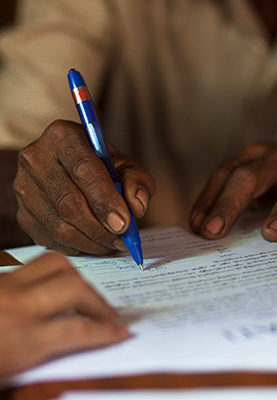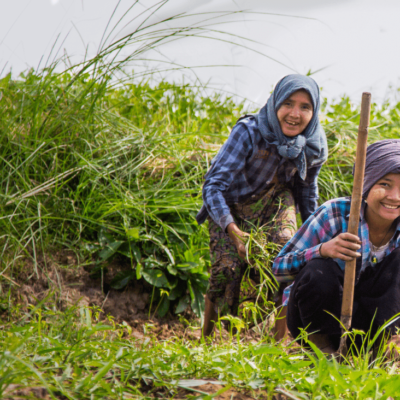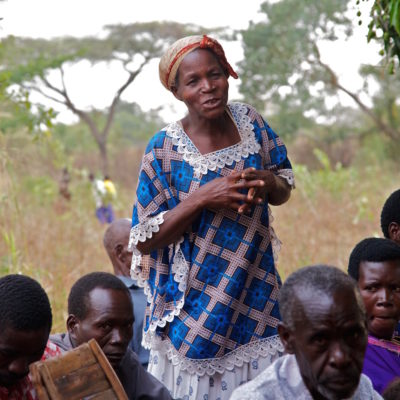The fight to protect our planet needs to be centered on empowered, impacted communities.
Our movement harnesses the knowledge and the leadership of the people who live at the frontlines of inequality and environmental destruction, especially women, to govern their land in ways that can mitigate and adapt to climate change. The tireless work of our network members shows that legal empowerment – the process of communities knowing, using, and shaping the law – is a critical tactic to ensure that our transition to a new, green economy is just and swift.
From spotting and stopping emissions at their source to protecting invaluable resources, like forests, communities with control over their land are making us all safer. Dozens of network members are attending COP27 to share how their communities are contributing and call for policymakers to back these locally-led solutions.
You can join us by reading about our Network’s asks below, engaging with us on social media, and attending these events virtually.

The Case for Investing in Impacted Communities and Grassroots Justice
November 9th at 11:30 GMT+2, Climate Justice Pavilion
As huge investments are made to forestall climate change, climate financing must flow to those most impacted by the crisis, and to support community-led approaches to strengthen access to justice. This panel, gathering those with deep understanding of communities historically harmed by environmental injustice, will highlight different opportunities for climate finance, including multilateral, bi-lateral, foundations, and private sector investments, to enable marginalized communities to be in a better position to protect the planet and facilitate transition to a new economy. Panelists will include:
- Effort Nkazimulo Ncube, Zimbabwe Environmental Law Association (ZELA), sharing how empowered communities can stop harm at the source
- Aimee Seligstein, Legal Empowerment Fund, sharing how funding legal empowerment can shift community participation in adaptation and mitigation challenges
- Gianella Guillén Fernández, DAR, sharing how investments in indigenous communities have improved outcomes for environmental transition, building resiliency and mitigation opportunities
- Peggy Shepard, WeAct, discussing the potential to apply the US Justice 40 to a global Justice40 as a framework moving forward
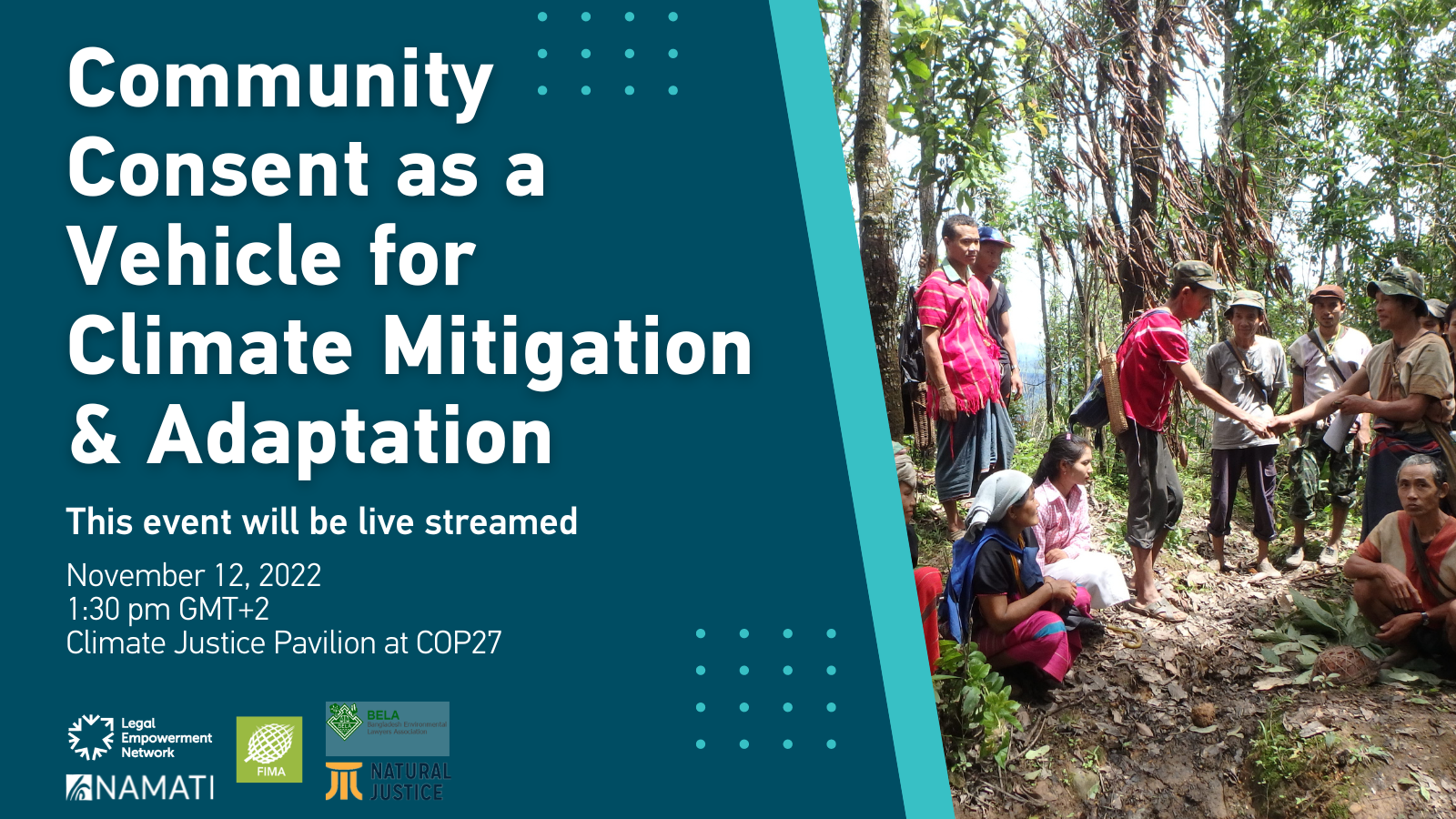
Community Consent as a Vehicle for Climate Mitigation and Adaptation
November 12th at 1:30 pm GMT+2, Climate Justice Pavilion
When communities impacted by environmental harm and climate change have control over the land where they live, they are able to protect the land from environmental destruction and facilitate investment into new greener economic options. This panel will build off examples from around the world, such as the new land law in Sierra Leone, to show how community’s consent over their land can facilitate climate mitigation and adaptation. The panel will discuss the roles different actors can play facilitating community consent, including national governments, multilateral institutions, donors, and corporations. Panelists will provide examples of how community consent can be used to ensure that we are able to respond to the urgent need for new construction while avoiding harming those most vulnerable.
- Sonkita Conteh, Namati (Sierra Leone)
- Nonhle Mbuthuma, community activist and land defender, Natural Justice (South Africa)
- Rizwana Hasana, Executive Director, BELA (Bangladesh)
- Ezio Costa Cordella, Executive Director, FIMA (Chile)
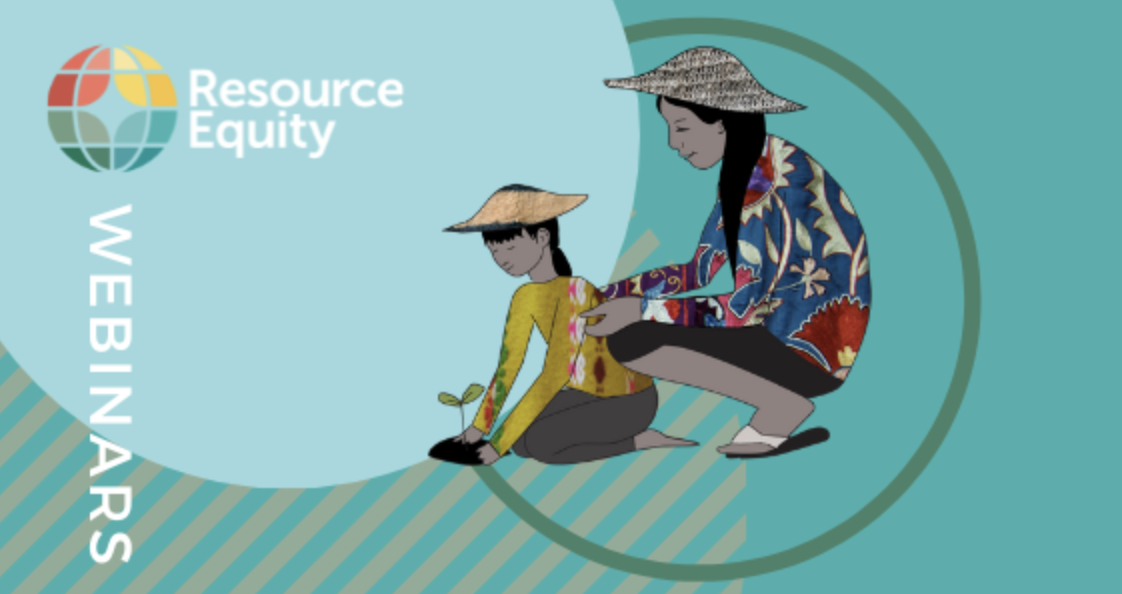
What Works for Women on Collective Lands?
Nov 10th @ 18:30 UTC/GMT and Nov 16th @ 07:00 UTC/GMT
Gathering experiences from around the globe, this panel, organized by Resource Equity, will help to show what gender justice looks like on collectively held lands. We’ll explore ground-tested, practical strategies that have been employed to ensure that women and men’s needs on collective lands are treated equally, and hear first hand what can be done to facilitate women’s meaningful engagement in decisions that impact them.
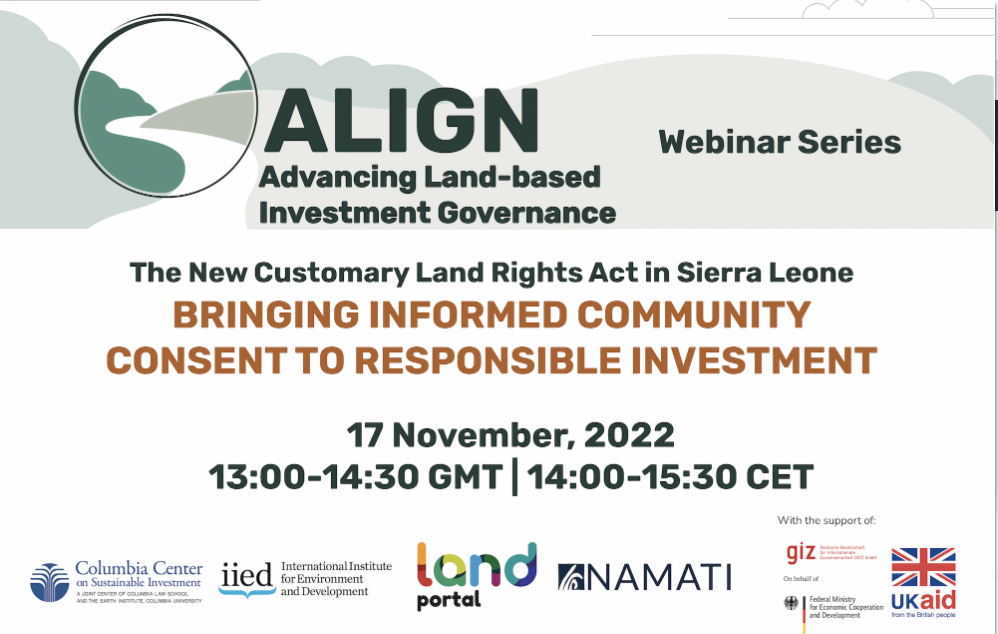
The New Customary Land Rights Act in Sierra Leone: Bringing informed community consent to responsible investment
Nov 17th, 13:00-14:30 GMT
Hear from community members and leaders in the legal empowerment movement who were able to advocate for a new land law in Sierra Leone that requires community consent for investments. The webinar, co-hosted by Land Portal, IIED, and CSIS will also feature voices from government and industry about how this new law can contribute to the country’s development.


